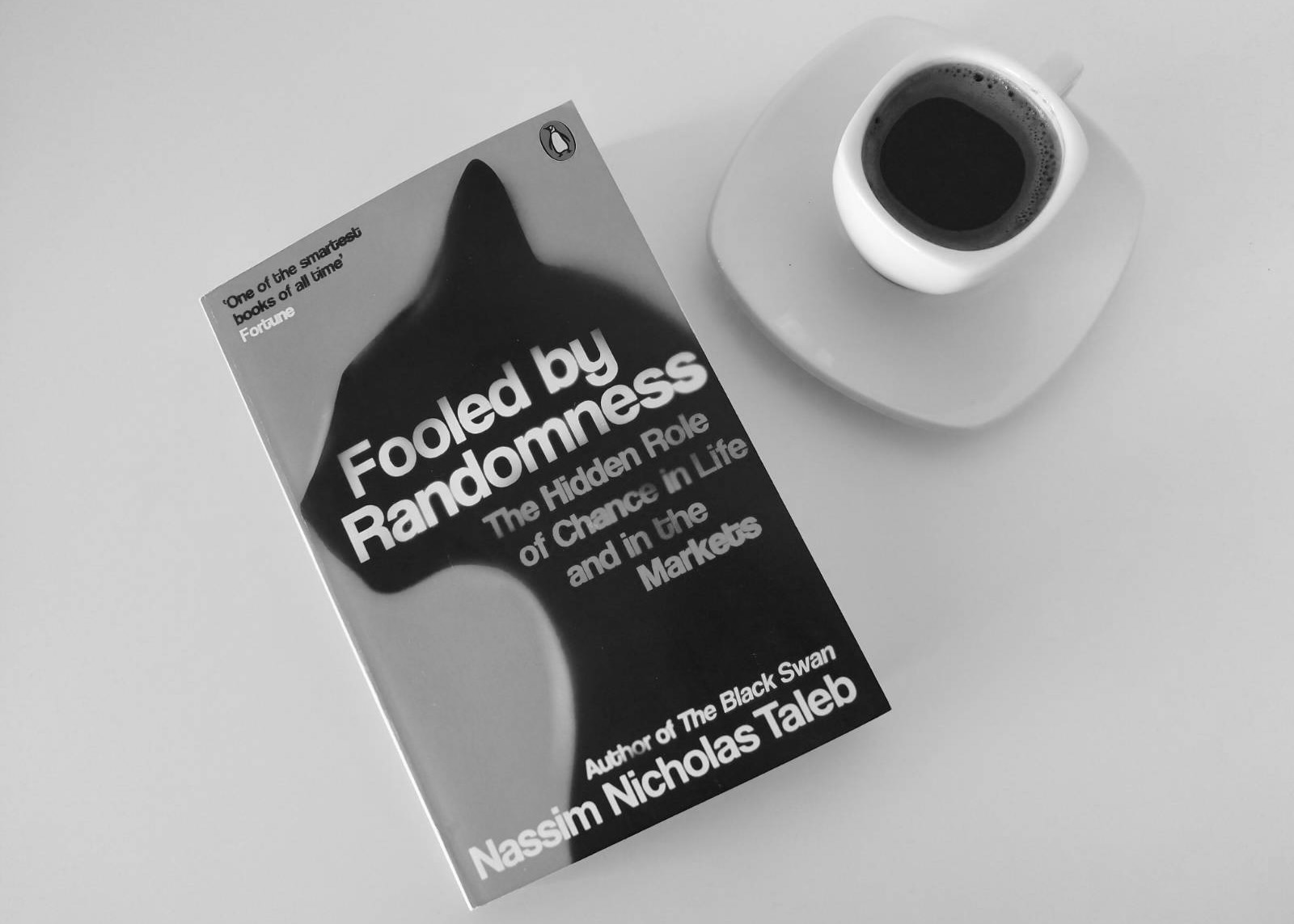I have read entire Incerto series by Taleb in reverse order (not intentionally) – starting from the most recent (Skin In the Game) up to the oldest (Fooled by Randomness).
Taleb was in this one actually not that arrogant and unpleasant as he usually is on Twitter or in his later works. This came as a big surprise. Don’t get me wrong, it’s still there but definitely not to such an extent as I was used to. Perhaps due to this fact, I must say that I might have enjoyed this one the most. However, I have to stress that all his books are worth it.
In Fooled by Randomness one can see basically all the topics on which Taleb elaborated further on in his later work. It follows that you will find Black Swans, asymmetries, nonlinearity and “skin in the game” in this book. As these are the main themes of the Incerto series, Fooled by Randomness could be regarded as a general introduction to the topic of randomness in our lives.
It’s not all random but definitely much more random than we think
In the second edition of the book, the author made some amends as well as additional remarks. Namely, to clarify the underlying message of Fooled by Randomness was not that “it’s all random” but rather that “the world is not all random but still much more than we tend to think“.
In one part of the book, which author himself called the least original, Taleb sums up to what biases are we, the human beings, prone. Building on that, one of the main premises presented in the book follows – our emotions and inherent human nature get us fooled by randomness. Because of that, we will never be able to act completely rationally, which is also really not something so desirable.
Having been completely rational, we would not likely be able to effectively make any decisions and consequently to survive. As the author puts it, we have not been designed to understand the world but rather to escape danger and procreate.
But that is fine as long as we are aware of it. Or at least as long as we don’t let ourselves be blinded by our own hubris. The history shows, however, that this is not at all so obvious as it may sound.
Taleb presents the line of characters, both real and fictional, that blew up (went bust) precisely because of the blindness for the role that randomness plays in our lives.
I guess it’s true that people, myself included, tend to account one’s achievements to particular abilities, whereas the failures are rather attributable to bad luck. Perhaps the message from all this should be to stop kid ourselves and start to accept that a chance plays much bigger role in our lives. (Another excellent book on this topic is Outliers from Malcolm Gladwell).
Think about the multiverse
Taleb maintains that a useful way of thinking about probabilities and chance in life is to consider also the events that did not happen.
Although this may sound counterintuitive, it actually makes a great sense to do so. This relates to the survivor bias, i.e. our condition to think about history, or past events, while at the same time considering what did happen in our reality. That way we can celebrate winners that may have just benefited from randomness and to mistake their luck for their abilities.
And it gets worse. Sometimes, owing to the randomness, those winners could also be the people undergoing foolish risks who would probabilistically end up going bust in most alternative universes. But we are wired consider the “what-happened” as the only thing that counts. It’s simply because
“we favor the visible, the embedded, the personal, the narrated, the tangible and we scorn the abstract”.
What to do next?
It helps to include what Taleb calls the ergodicity into our worldview – that is, convergence to the long term properties in the long run.
In other words, the longer we do something over and over again, the more likely is the outcome to resemble the same path.
The question is whether such a convergence would always take place within one’s life. And the answer is, at least I think, of course that it’s possible that it will not. This is why an extremely risky (investment) strategy may prove to be successful and the bust may not come. In such cases, we usually tend to call those people successful. I guess Taleb’s point in that was to think about it more critically and properly account for the role of luck and randomness.
It follows, as the author reiterates throughout the Incerto series that there is nothing inherently wrong (possibly foolish, yes) about taking unwarranted risks as long as one does not expose to the negative effects of the Black Swans and risks everything in the process (see further The Black Swan on this topic), or while doing so does not do that without skin in the game (see further Skin in the Game).
Conversely, it may make sense to take asymmetrical risk in order to actually reap the benefits of the Black Swan (see further Antifragile).


